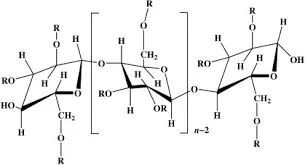
Nov . 07, 2024 17:16 Back to list
Hydroxyethyl Cellulose Suppliers and Manufacturers for Industrial Applications and Specialty Products
Hydroxyethyl Cellulose An Overview of Manufacturers and Applications
Hydroxyethyl cellulose (HEC) is a non-ionic, water-soluble polymer derived from cellulose, widely used in various industries due to its unique properties. This versatile substance can enhance viscosity, improve adhesion, and act as a thickening agent, making it essential in fields such as pharmaceuticals, cosmetics, construction, and food production. With its increasing demand, a multitude of manufacturers have emerged globally, each contributing to the growth and innovation surrounding HEC.
Understanding Hydroxyethyl Cellulose
HEC is synthesized by ethylene oxide reaction with cellulose, resulting in a polymer that exhibits excellent solubility in water across various temperatures. Its non-ionic nature contributes to its stability in diverse pH conditions, making it particularly valuable in formulations where pH levels can fluctuate. HEC can form gels, enhance texture, and modify moisture retention, making it suitable for applications in personal care products, such as lotions and shampoos, as well as in industrial applications like paints and adhesives.
Applications of Hydroxyethyl Cellulose
1. Pharmaceuticals In the pharmaceutical sector, HEC's ability to act as a thickener and stabilizer is utilized in formulations for gels, ointments, and creams. Its biocompatibility and inability to irritate skin make it an ideal ingredient in topical products.
2. Cosmetics The cosmetic industry utilizes HEC for its thickening and emulsifying properties. It is frequently found in products such as foundation, creams, and hair care items, where it aids in achieving the desired texture and consistency while enhancing moisture retention.
3. Construction In building materials, hydroxyethyl cellulose serves as a crucial additive in mortar, tile adhesives, and other cement-based products. It improves workability and reduces water loss during application, ensuring better adhesion and durability.
4. Food Production In the food industry, HEC acts as a thickening agent, stabilizer, and emulsifier, enhancing the texture and repeatability of food products. It is particularly beneficial in products requiring a smooth consistency.
5. Other Industries HEC’s versatility enables its use in various other sectors, including packaging, textile processing, and even agriculture, where it can improve soil moisture retention and act as an agent in controlled-release fertilizers.
Leading Manufacturers of Hydroxyethyl Cellulose
hydroxyethyl cellulose manufacturer

The market for hydroxyethyl cellulose is populated by numerous manufacturers, each with distinctive strengths. Some of the prominent players include
1. Dow Chemical Company One of the largest producers of hydroxyethyl cellulose, Dow leverages its extensive research and development capabilities to innovate product formulations and applications, ensuring high quality and consistency in their offerings.
2. Ashland Global Holdings Ashland is recognized for its broad range of HEC products formulated for different applications, particularly in the pharmaceutical and personal care sectors. Their commitment to sustainability and eco-friendly products stands out in the competitive landscape.
3. Shin-Etsu Chemical Known for quality and reliability, Shin-Etsu has made a significant impact on the HEC market. Their products are commonly used in high-performance applications, including those in the construction and automotive industries.
4. Nippon Shokubai This Japanese manufacturer has developed a variety of hydroxyethyl cellulose products, focusing on innovation in polymer science and serving global markets with cutting-edge solutions.
5. Celanese Corporation Celanese offers a range of HEC products catered to various industries, emphasizing performance and formulation flexibility. Their focus on customer collaboration enhances product development.
Sustainability in Hydroxyethyl Cellulose Production
As global demand for environmentally-friendly products rises, manufacturers of hydroxyethyl cellulose are increasingly focusing on sustainable practices. This includes sourcing raw materials from renewable resources and optimizing production processes to minimize waste and energy consumption. The push for sustainability not only benefits the environment but also meets consumer demand for green products, positioning HEC manufacturers ahead of the competition.
Conclusion
Hydroxyethyl cellulose has secured its place as an essential ingredient across multiple industries, thanks to its unique properties. The large number of manufacturers ensures a steady supply and ongoing innovation, allowing for new applications and improved formulations. As sustainability becomes a priority, the future of HEC production holds great promise, reflecting the industry's commitment to meeting the evolving needs of various sectors while also taking care of the planet.
-
Versatile Hpmc Uses in Different Industries
NewsJun.19,2025
-
Redispersible Powder's Role in Enhancing Durability of Construction Products
NewsJun.19,2025
-
Hydroxyethyl Cellulose Applications Driving Green Industrial Processes
NewsJun.19,2025
-
Exploring Different Redispersible Polymer Powder
NewsJun.19,2025
-
Choosing the Right Mortar Bonding Agent
NewsJun.19,2025
-
Applications and Significance of China Hpmc in Modern Industries
NewsJun.19,2025







